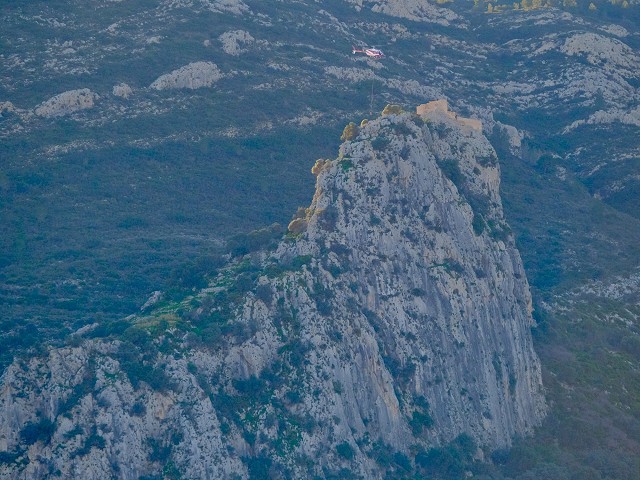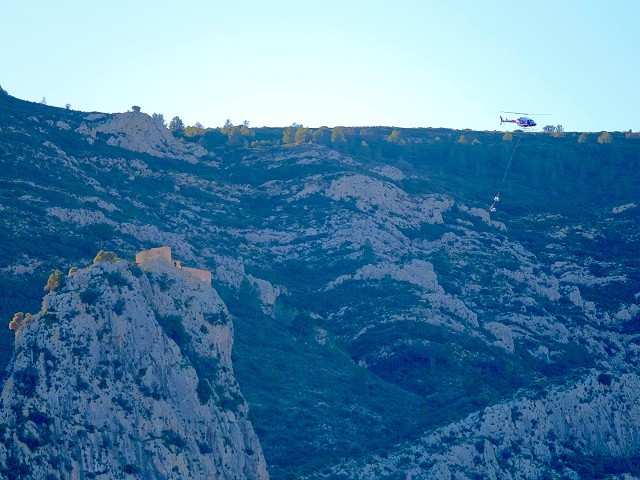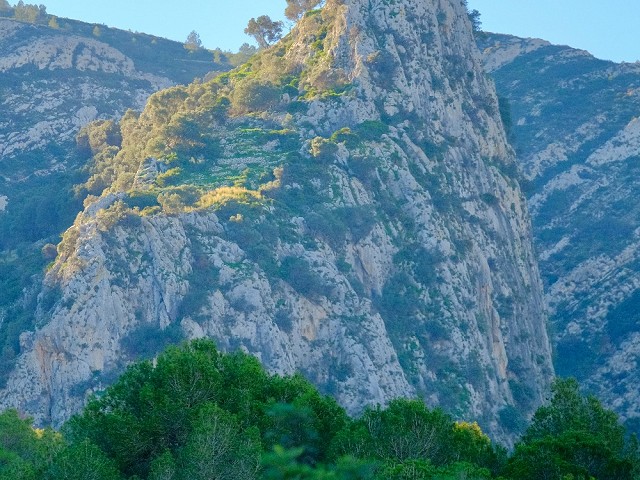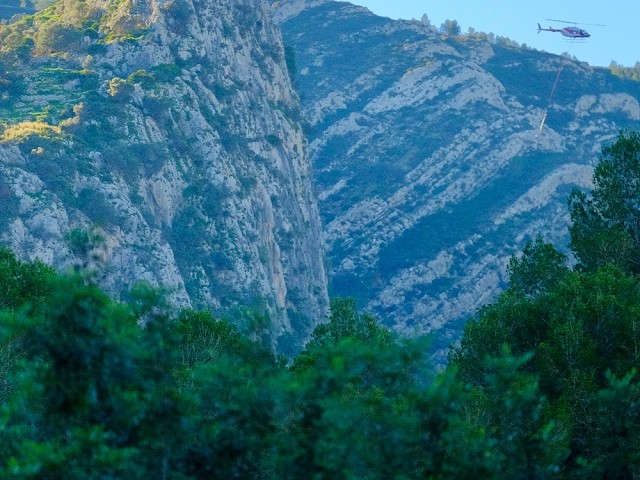The Restoration of Castell de l’Ocaive: A Living Heritage in Pedreguer
The Castell de l’Ocaive, a medieval fortress and an emblematic landmark of the Marina Alta region, is undergoing an ambitious restoration project to preserve its historical and cultural legacy. Perched on a steep rocky outcrop in Pedreguer’s Muntanya Gran, this castle is a witness to centuries of history and remains one of the area’s most iconic sites.
A Unique Intervention: Helicopters Supporting Heritage
Last Thursday, the skies over Pedreguer offered an extraordinary sight: a helicopter transporting materials to the mountaintop for the castle’s restoration. This unconventional method has become essential due to the site’s inaccessibility, as no roads allow vehicles to reach the area.
Since late 2023, the project has transported approximately 75 tons of materials to reinforce the castle’s structure and advance its consolidation. This intervention adds to ongoing efforts in recent years, including archaeological excavations, wall restoration, and protection of endangered elements.
History of Castell de l’Ocaive
The Castell de l’Ocaive dates back to the 13th century, during the period of Muslim rule in the Iberian Peninsula. After the Christian reconquest, this strategic stronghold became part of the Aragonese crown, witnessing numerous historical events. Today, its remains include sections of walls, watchtowers, and traces of ancient buildings.
Declared a Cultural Heritage Site (Bien de Interés Cultural), the castle has been the subject of archaeological research that has uncovered significant findings about its construction and usage. Efforts have led to the recovery of ceramic fragments and defensive structures, shedding light on its storied past.
The Cultural and Touristic Impact of the Restoration
The restoration of Castell de l’Ocaive aims not only to ensure its preservation but also to transform it into a focal point for heritage enthusiasts and cultural tourism. By consolidating its most vulnerable structures, the goal is to make the site more accessible and engaging for visitors, highlighting its value as a symbol of local identity.
Led by the Pedreguer Town Council, in collaboration with other organizations and specialists in archaeology and restoration, the project adopts a sustainable approach that respects the surrounding environment. These efforts reinforce Castell de l’Ocaive’s importance as a legacy connecting the past with the present and as a key site for the cultural future of the Marina Alta region.



